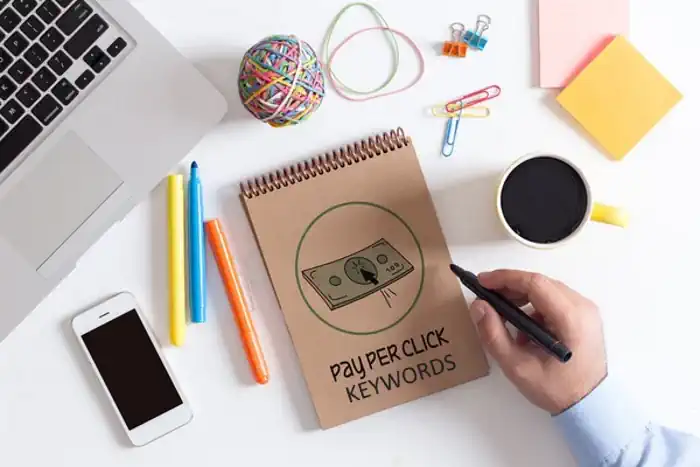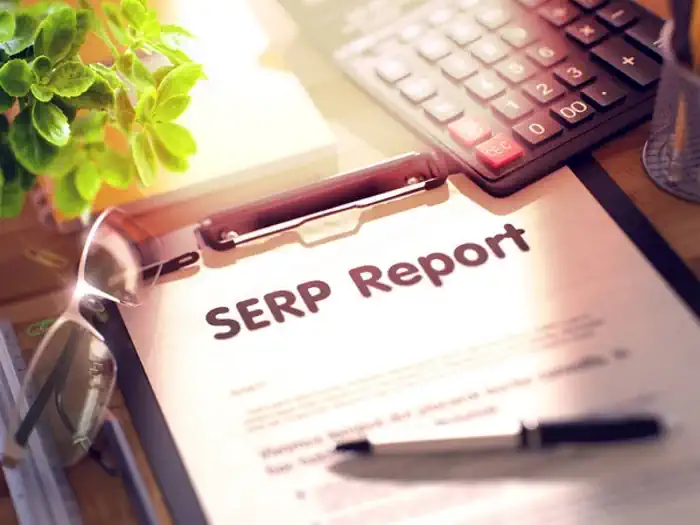Keyword bidding is a process that is used in pay-per-click (PPC) advertising to determine the placement and cost of an ad in search results. In a PPC campaign, businesses bid on specific keywords in order to display their ads in the search results when those keywords are used in a search query.

Here’s How Keyword Bidding Works
- A business selects the keywords that they want to bid on in their PPC campaign. These keywords should be relevant to the products or services that the business offers and should be used by their target audience.
- The business sets a bid amount for each keyword. This is the maximum amount that the business is willing to pay for each click on their ad when that keyword is used in a search query.
- When a user performs a search using one of the keywords that the business is bidding on, the search engine evaluates the bid amount of the business and other advertisers who are also bidding on that keyword. The search engine then determines the placement and cost of the ad based on a combination of the bid amount and the relevance and quality of the ad.
- If a user clicks on the ad, the business is charged the amount of their bid or the amount of the second-highest bid, whichever is lower. This is known as the “cost-per-click” (CPC) of the ad.
One of the benefits of a PPC campaign is that it allows businesses to target specific keywords and demographics, and to bid on those keywords in order to increase the visibility and reach of their ads. By carefully selecting and bidding on relevant keywords, businesses can improve the performance of their PPC campaigns and drive more valuable traffic to their website.
It’s an Auction
A pay-per-click (PPC) campaign can be thought of as an auction. Rather than bidding on goods, like you would at an estate auction, businesses bid on specific keywords, in order to display their ads in the search results when those keywords are used in a search query. In this sense, a PPC campaign is like an auction.
In a PPC campaign, the business that places the highest bid for a keyword is typically awarded the top position in search results. However, the second and third highest bids (and others) may also be awarded a placement, depending on the specific terms of the PPC platform being used, and the number of ads they show per search. In addition, other bidders may be awarded placements, perhaps at different times, depending on the competitiveness of the keyword and the relevance and quality of their ad.

By carefully selecting and bidding on relevant keywords, you can increase your chances of winning the “auction” and getting the best placement in search results.
Controlling Costs
We are commonly warned that those who are new to keyword bidding and do not fully understand the process can risk significant financial losses if they are not careful. This is often true, but there are several strategies that businesses can use to control their costs when bidding on keywords in a PPC campaign:
Set a daily budget
One way to control costs is to set a daily budget for your PPC campaign. In additional to limiting the amount you are willing to spend per click, this will limit the amount of money that you spend on clicks per day, and can help to ensure that you don’t exceed your desired budget.
- A fashion boutique sets a daily budget of $50 for their PPC campaign. This means that they will not spend more than $50 on clicks per day, helping to ensure that they don’t exceed their overall advertising budget.
Use bid adjustments
Many PPC platforms allow you to adjust your bids based on various factors, such as the location of the user, the device they are using, or the time of day. By using bid adjustments, you can target your ads to specific segments of your audience and adjust your bids accordingly.
- A local restaurant uses bid adjustments to target their ads to users within a 10-mile radius of their location. They set a higher bid amount for this geographic area to increase the chances of their ad being shown to nearby users.
- An e-commerce company adjusts their bids based on the device being used by the user. They set a higher bid amount for users on mobile devices, as they have found that these users are more likely to make a purchase.
Use negative keywords
Negative keywords are keywords that you do not want your ads to be triggered by. By using negative keywords, you can help to eliminate irrelevant clicks and reduce your costs.
- A home renovation company adds “cheap” as a negative keyword to their PPC campaign. This means that their ads will not be shown to users who are searching for cheap home renovation services, helping to eliminate irrelevant clicks and reduce their costs.
Monitor and adjust your bids regularly
It’s important to regularly monitor the performance of your PPC campaign and adjust your bids as needed. By analyzing the results of your ads and making adjustments to your bid amounts and targeting, you can optimize your campaign and control your costs.
- A small business owner regularly checks the performance of their PPC campaign and adjusts their bid amounts based on the results. They increase their bid for keywords that are driving a high number of conversions and decrease their bid for keywords that are not performing as well. This helps them to optimize their campaign and control their costs.
By following these strategies and continually monitoring and adjusting your PPC campaign, you can effectively control your costs and get the most value from your advertising investment.

How Much Should I Bid?
The bid amount for a keyword in a PPC campaign can depend on a variety of factors, including the competitiveness of the keyword, the target audience, and the business’s advertising goals. Here are a few examples of keywords that may require a higher bid:
- Highly competitive keywords: Keywords that are commonly used by a large number of businesses or are related to popular products or services may be more competitive and may require a higher bid in order to be shown in search results. For example, a business that sells running shoes might need to bid higher for the keyword “running shoes” than for a less competitive keyword like “orthopedic running shoes.”
- Keywords with a high commercial intent: Keywords that indicate that a user is actively looking to make a purchase may be more valuable and may require a higher bid. For example, a business that sells wedding dresses might need to bid higher for the keyword “buy wedding dress” than for a keyword with a lower commercial intent like “wedding dress styles.”
Here are a few examples of keywords that may require a lower bid:
- Less competitive keywords: Keywords that are less commonly used or are related to niche products or services may be less competitive and may require a lower bid in order to be shown in search results. For example, a business that sells handmade ceramic pottery might be able to bid lower for the keyword “handmade ceramic pottery” than for a more competitive keyword like “ceramic pottery.”
- Keywords with a lower commercial intent: Keywords that indicate that a user is in the research or discovery phase of their purchase journey may be less valuable and may require a lower bid. For example, a business that sells outdoor gear might be able to bid lower for the keyword “outdoor gear reviews” than for a keyword with a higher commercial intent like “buy outdoor gear.”
By carefully considering the competitiveness and commercial intent of keywords, you can set appropriate bid amounts and optimize your PPC campaigns for your advertising goals and budget.
Setting A Low Bid
It’s important to keep in mind that setting a low bid amount does not necessarily mean that your ad will not be shown at all. In a PPC campaign, the bid amount is just one factor that determines the placement and cost of an ad. The relevance and quality of the ad are also important factors, and a well-written and relevant ad with a low bid amount may still be shown in search results. Also, if the businesses with the highest bid amounts for a keyword have reached their daily ad budget, lower-priced bids may begin to be shown in the search results.
That being said, it’s important to set a realistic bid amount for your keywords based on your advertising goals and budget. A low bid amount may result in your ad being shown less frequently or in a lower position in search results, which can impact the performance of your PPC campaign.
- For example, in the case of keywords related to lawyers, it may not be realistic to bid $2 as the competition for these keywords is likely to be high and the average cost-per-click (CPC) may be upwards of $200.

On the other hand, setting a high bid amount does not necessarily guarantee a top position in search results, as the other factors mentioned before, such as the relevance and quality of the ad are also taken into consideration.
Overall, it’s important to carefully consider your bid amount and set it based on your advertising goals, budget, and the competitiveness of the keywords you are bidding on. By continually monitoring and adjusting your bid amount, you can optimize your PPC campaign and get the most value from your advertising investment.
Tools That Can Help You Set Your Keyword Bidding Amounts
There are several keyword research tools and platforms that businesses can use to get an idea of the average cost-per-click (CPC) for a particular keyword. These tools can be helpful for businesses to gauge the competitiveness of a keyword and to set realistic bid amounts for their PPC campaigns.
There are many, many programs out there, but here are a few well-known examples of keyword research tools and platforms that can help businesses to get an idea of the average CPC for a keyword:
- Google Ads Keyword Planner: This is a free tool that is available to businesses that use Google Ads to run their PPC campaigns. The Keyword Planner allows businesses to search for keywords and get estimates on the average CPC, as well as the estimated number of searches for the keyword.
- SEMrush: This is a paid keyword research tool that offers a wide range of features for businesses, including the ability to see the average CPC for a keyword and to compare the cost of different keywords.
- Ahrefs: This is another paid keyword research tool that offers a variety of features, including the ability to see the average CPC for a keyword and to compare the cost of different keywords.
- Mangools: This is a less expensive suite of SEO tools that includes a keyword research feature to see the average CPC and compare the cost of different keywords. It also offers site audit, backlink analysis, and rank tracking. It is easy to use and offers various pricing options.
Using these types of keyword research tools can help you get a better understanding of the average CPC for a keyword and set realistic bid amounts for them in your PPC campaigns. It’s important to keep in mind that the average CPC for a keyword can vary based on a variety of factors, such as the location of the user, the device they are using, and the time of day. As a result, it’s important for businesses to continually monitor and adjust their bids to optimize their PPC campaigns.
In summary, keyword bidding is a critical aspect of pay-per-click (PPC) advertising, as it determines the placement and cost of an ad in search results. There are several strategies that businesses can use to control costs and maximize the effectiveness of their PPC campaigns, including setting a daily budget, using bid adjustments, using negative keywords, and regularly monitoring and adjusting their bids. By using these strategies and taking advantage of keyword research tools and platforms, businesses can get a better understanding of the average cost-per-click (CPC) for a keyword and set realistic bid amounts for their campaigns.

